Introduction to Advanced Industrial Protection and Market Dynamics
In the rapidly evolving industrial landscape, the integrity and longevity of critical infrastructure are paramount. Assets exposed to harsh operational environments, including extreme temperatures, aggressive chemicals, and abrasive forces, necessitate robust protective solutions. Traditional methods often fall short, leading to frequent maintenance, costly downtime, and diminished operational efficiency. This critical demand drives innovation in material science, leading to high-performance solutions designed for resilience and extended service life.
One such pioneering solution is the Industrial Amor Wrap. Engineered for superior protection, this advanced material addresses the complex challenges faced by various heavy industries. Current market trends indicate a strong shift towards intelligent, long-lasting, and environmentally conscious protective technologies. Companies are increasingly investing in solutions that not only prevent degradation but also contribute to energy savings and reduced operational expenditure, aligning with global sustainability initiatives and stricter regulatory compliance.
The demand for protective coatings and wraps in sectors such as oil & gas, petrochemicals, water infrastructure, and power generation is projected to grow significantly, driven by aging infrastructure and the need for enhanced asset reliability. Specialized products like Industrial Amor Wrap are at the forefront of this evolution, offering a strategic advantage in maintaining operational continuity and safety.
The Advanced Manufacturing Process of Industrial Amor Wrap
The production of Industrial Amor Wrap is a sophisticated multi-stage process, meticulously controlled to ensure a high-performance, consistent product. It integrates advanced material science with precision engineering to create a composite material capable of enduring extreme industrial conditions.
Key Materials and Composites:
- High-Performance Polymers: Typically utilizing modified polyolefin or polyurethane blends known for their chemical inertness and mechanical strength. These polymers are selected for their excellent resistance to acids, alkalis, solvents, and hydrocarbons.
- Fiber Reinforcement: Incorporating high-tensile strength woven or non-woven fabrics, such as polyester or fiberglass, to provide exceptional structural integrity, impact resistance, and tear strength. This reinforcement layer distributes stress effectively, preventing localized failure.
- Adhesion Modifiers & UV Stabilizers: Specialized additives are blended into the polymer matrix to enhance adhesion to various substrates and provide long-term protection against UV degradation, critical for outdoor applications.
- Corrosion Inhibitors: In some formulations, active or passive corrosion inhibitors are integrated to provide an additional layer of electrochemical protection to metallic substrates.
Detailed Manufacturing Steps:
- Material Compounding & Blending: Raw polymer resins are precisely weighed and mixed with reinforcing fibers, adhesion promoters, UV stabilizers, and other proprietary additives in high-shear mixers. This ensures homogeneous dispersion of all components.
- Extrusion & Sheet Formation: The compounded material is then fed into an advanced extrusion line, where it is melted and pushed through a die to form a continuous, uniform sheet of specified thickness. Calendering rollers further refine the sheet's dimensions and surface finish.
- Reinforcement Lamination: The polymer sheet is then laminated onto the fiber reinforcement layer using heat and pressure. This critical step ensures a strong, inseparable bond between the protective polymer and the structural fabric, creating a robust composite.
- Curing and Stabilization: Depending on the polymer system, the laminated material may undergo a curing process, often involving controlled temperature and humidity, to achieve optimal cross-linking and mechanical properties. This enhances dimensional stability and performance.
- Slitting & Winding: The wide composite sheet is then precisely slit into desired widths and wound onto cores, ready for packaging and distribution. Advanced tension control systems ensure uniform rolls.
- Quality Control & Testing: Throughout the process, rigorous quality control checks are performed. This includes material rheology, layer thickness uniformity, bond strength, tensile strength, elongation, and chemical resistance.
Testing Standards and Certifications:
Every batch of Industrial Amor Wrap undergoes stringent testing to comply with international and industry-specific standards, ensuring its reliability and performance.
- ISO 9001: Certification for Quality Management Systems, ensuring consistent product quality.
- ASTM Standards: Adherence to various ASTM (American Society for Testing and Materials) standards for tensile strength (e.g., ASTM D882), tear resistance (ASTM D1004), puncture resistance (ASTM D4833), chemical resistance (ASTM D543), and UV exposure (ASTM G154).
- NACE Standards: Compliance with NACE International (now AMPP) standards for corrosion protection and performance in specific environments, crucial for petrochemical applications.
- ANSI Standards: Relevant ANSI (American National Standards Institute) guidelines for product safety and performance.
Projected Service Life and Advantages:
With proper application, Industrial Amor Wrap is engineered for an extended service life, typically exceeding 20-30 years, significantly outperforming traditional coatings that often require reapplication every 5-10 years. This longevity translates directly into substantial cost savings and reduced environmental impact.
Target Industries: Petrochemical, Metallurgy, Water Supply & Drainage, Offshore & Marine, Mining, Power Generation, and Infrastructure.
Advantages in Typical Application Scenarios: In petrochemical pipeline protection, its exceptional corrosion resistance and impermeability to moisture and chemicals prevent costly leaks and structural degradation. For water supply and drainage systems, it offers robust protection against external forces and soil contaminants, extending the lifespan of critical municipal assets. The material's inherent low thermal conductivity also contributes to energy saving by reducing heat loss or gain in insulated systems.
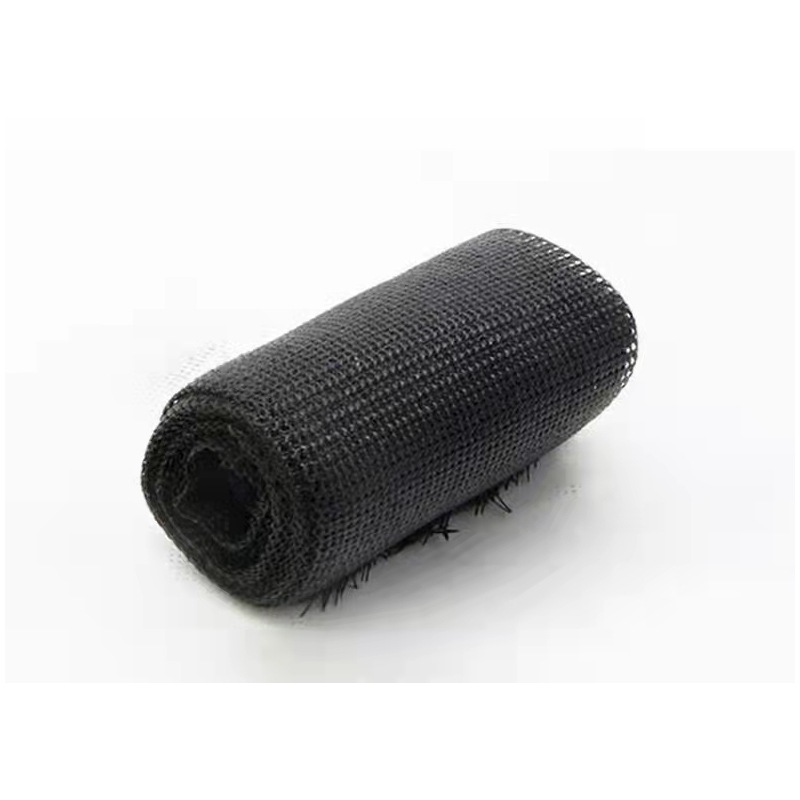
Technical Specifications and Performance Parameters
The efficacy of Industrial Amor Wrap is rooted in its meticulously engineered technical specifications, designed to meet the rigorous demands of industrial environments. These parameters ensure optimal performance, durability, and reliability across a diverse range of applications.
Key Performance Characteristics:
- Tensile Strength: A critical indicator of the material's ability to withstand pulling forces without fracturing. High tensile strength ensures structural integrity under mechanical stress.
- Elongation at Break: Measures the material's ductility and ability to stretch before breaking, providing flexibility and resistance to sudden impacts or movements.
- Temperature Resistance: Defines the operational temperature range, crucial for applications in both extremely hot and cold climates or processes.
- Chemical Resistance: The material's capacity to resist degradation from exposure to various acids, alkalis, solvents, and hydrocarbons, ensuring long-term protection in corrosive chemical environments.
- Abrasion Resistance: Indicates the material's ability to withstand wear caused by rubbing or friction, vital for buried pipelines or areas with particulate matter.
- UV Stability: The resistance to degradation from ultraviolet radiation, ensuring performance integrity for outdoor installations over decades.
- Dielectric Strength: Important for electrical insulation properties, preventing current leakage or short circuits when used near electrical systems.
- Water Vapor Transmission Rate (WVTR): A low WVTR indicates excellent barrier properties against moisture ingress, preventing corrosion under insulation (CUI).
Typical Product Specification Table:
Versatile Application Scenarios and Target Industries
The robust design and superior protective qualities of Industrial Amor Wrap make it an indispensable solution across a multitude of heavy industrial applications. Its adaptability allows for effective deployment in environments where conventional protective measures frequently fail.
Primary Target Industries:
- Petrochemical and Oil & Gas: Critical for protecting pipelines (onshore and offshore), storage tanks, valves, and fittings from aggressive corrosives, soil stress, and environmental degradation. Its resistance to hydrocarbons and saline environments is particularly valuable.
- Metallurgy and Mining: Provides essential protection for process piping, structural steel, and equipment operating in highly abrasive conditions, exposure to acidic mine water, and fluctuating temperatures.
- Water Supply & Drainage Infrastructure: Used for the rehabilitation and protection of buried and above-ground water mains, sewage pipes, and treatment plant components against soil corrosion, microbial induced corrosion (MIC), and mechanical damage.
- Power Generation: Applicable for protecting cooling water intake/outfall pipes, steam lines, and structural elements in power plants (thermal, nuclear, hydroelectric) from corrosion and erosion.
- Marine and Offshore: Offers superior resistance to saltwater corrosion, biofouling, and mechanical impact for piles, risers, subsea pipelines, and splash zone protection on offshore platforms.
Demonstrated Advantages in Typical Scenarios:
- Energy Saving: When applied over insulation, its robust outer layer protects against moisture ingress and physical damage, preserving the insulation's integrity and thus preventing heat loss/gain. This significantly reduces energy consumption for heating or cooling processes.
- Corrosion Resistance: In a petrochemical plant, pipelines carrying corrosive chemicals are continuously subjected to external chemical attacks and atmospheric corrosion. Applying Industrial Amor Wrap creates an impermeable barrier that isolates the pipe from these elements, preventing galvanic corrosion, pitting, and stress corrosion cracking.
- Abrasion and Impact Protection: For buried pipelines in rocky or unstable soil, the wrap provides an additional layer of mechanical protection against soil stress, rock impingement, and external impact from construction activities, thereby extending the asset's design life and preventing catastrophic failures.
- Reduced Downtime and Maintenance: By providing long-term, reliable protection, the need for frequent inspections, repairs, and recoating is dramatically reduced. This translates into significant cost savings, minimized operational interruptions, and improved safety records.
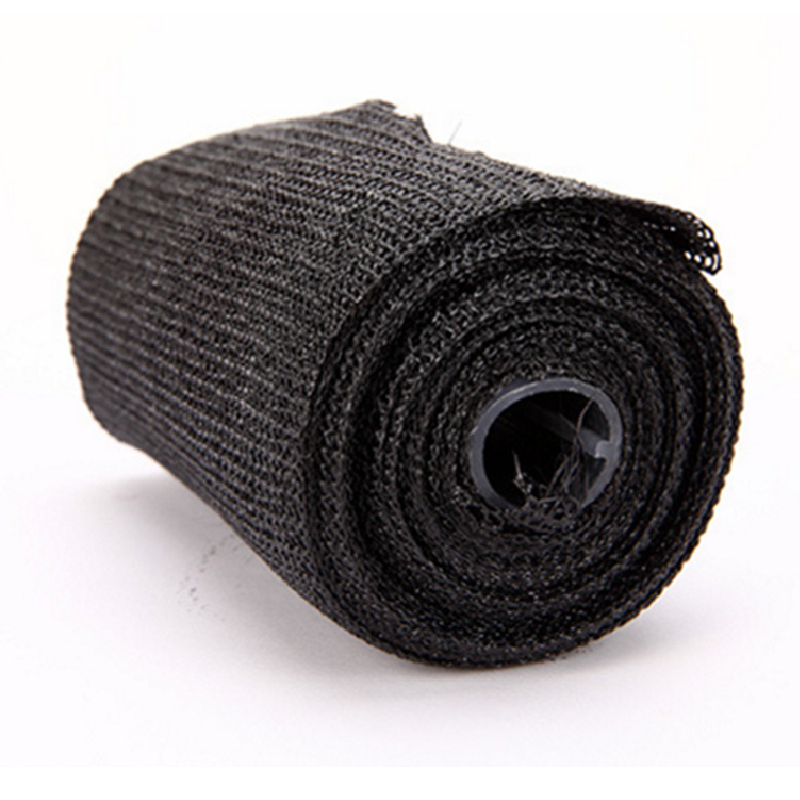
Strategic Advantages of Industrial Amor Wrap
The deployment of Industrial Amor Wrap offers a comprehensive suite of strategic advantages that elevate it above conventional protective solutions, translating into tangible benefits for industrial operations.
Core Benefits for Industrial Assets:
- Unparalleled Corrosion Resistance: Formulated with advanced polymers, it creates an impenetrable barrier against moisture, oxygen, chemicals, and microbial attacks, effectively halting the corrosive process at its source. This extends the service life of metallic substrates significantly.
- Exceptional Mechanical Protection: The multi-layer, fiber-reinforced composite structure provides superior resistance to abrasion, impact, and puncture. This is crucial for buried pipelines susceptible to soil stress, rock impingement, or external mechanical damage.
- Extended Asset Service Life: By mitigating the primary causes of infrastructure degradation (corrosion, abrasion, UV exposure), Industrial Amor Wrap dramatically extends the operational lifespan of assets, deferring replacement costs and capital expenditure.
- Significant Reduction in Maintenance Costs: The long-term durability and minimal need for reapplication or repair lead to substantial savings in labor, materials, and associated downtime costs over the asset's lifecycle.
- Ease and Speed of Application: Designed for straightforward field application, often without the need for specialized heavy equipment. Its conformable nature allows for efficient wrapping around complex geometries, reducing installation time and labor.
- Environmental Sustainability: With its extended service life, reduced material consumption due to less frequent replacement, and potential for energy savings (by protecting insulation integrity), it contributes to a lower carbon footprint and reduced waste generation compared to short-lived alternatives.
- Temperature Stability: Maintains its protective properties across a broad operational temperature range, ensuring performance consistency in diverse climatic conditions.
- Dielectric Properties: Provides robust electrical insulation, safeguarding against stray current corrosion and enhancing safety in electrically active environments.
Vendor Comparison: Industrial Amor Wrap vs. Traditional Solutions
The selection of an appropriate protective solution is a critical decision influencing operational longevity, cost-efficiency, and safety. A comparative analysis highlights the distinct advantages of Industrial Amor Wrap over conventional methods.
Comparison with Traditional Protective Measures:
- Paint Coatings: While offering initial protection, paint coatings are prone to chipping, cracking, and delamination, especially under harsh conditions or mechanical stress. They often require frequent reapplication (every 3-7 years) and extensive surface preparation, increasing lifecycle costs and VOC emissions.
- Sacrificial Anodes (Cathodic Protection): Effective for preventing galvanic corrosion, but require regular monitoring, replacement, and are often insufficient for mechanical or chemical protection. They are also limited to specific metallic structures.
- Conventional Bituminous or Wax-Based Wraps: These wraps can offer some corrosion protection but often lack the mechanical strength, UV stability, and broad chemical resistance of modern composite wraps. They can soften in heat or become brittle in cold, leading to disbondment.
- Epoxy or Polyurethane Coatings: While durable, these often require precise mixing ratios, specific environmental conditions for application, and can be difficult to repair locally. Their flexibility might also be less than advanced wraps.
Comparative Analysis Table:
This comparison highlights that while traditional methods offer some level of protection, their limitations in terms of durability, resistance to diverse threats, and long-term cost-effectiveness make them less optimal for modern industrial demands. Industrial Amor Wrap emerges as a comprehensive, long-term solution that provides superior asset integrity and lifecycle value.
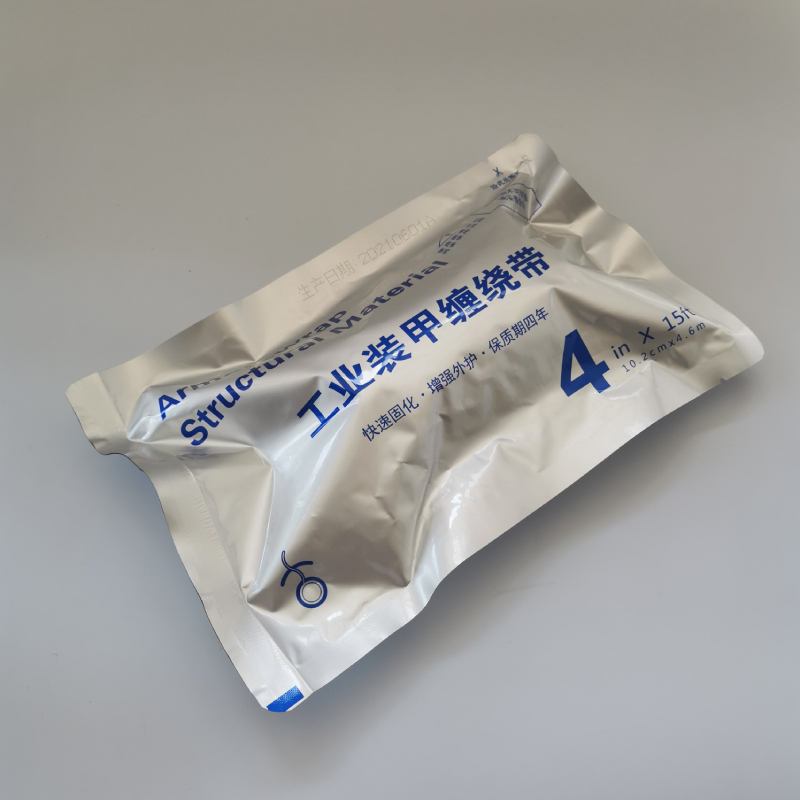
Customized Solutions and Application Expertise
Recognizing that no two industrial challenges are identical, the adaptability of Industrial Amor Wrap extends to comprehensive customization options. This ensures that the protective solution precisely matches the unique demands of each project and environment.
Tailored for Specific Requirements:
- Thickness and Width Variations: The wrap can be manufactured in various thicknesses to provide enhanced mechanical protection for high-risk areas or thinner profiles for less aggressive environments. Widths can also be customized to optimize application efficiency for different pipe diameters or structural sizes.
- Specialized Chemical Resistance: For environments with unique chemical exposures (e.g., concentrated acids, specific industrial solvents), the polymer formulation can be modified to provide enhanced resistance to those particular aggressors.
- Flame Retardancy: In critical areas requiring stringent fire safety standards, specific additives can be incorporated to achieve desired flame retardant or self-extinguishing properties, complying with industry-specific fire ratings.
- Color Coding: While often functional, color can also be customized for visual identification of lines (e.g., different product streams, safety zones) or aesthetic integration into the facility's design.
- Temperature Range Adaptation: For extreme high or low-temperature applications beyond standard operational ranges, specialized polymer blends can be engineered to maintain flexibility at cryogenic temperatures or structural integrity at elevated temperatures.
The Importance of Application-Specific Engineering:
Effective protection goes beyond material properties; it requires a deep understanding of the application context. Our team of engineers works closely with clients to:
- Assess Environmental Conditions: Thorough analysis of ambient temperatures, chemical exposures, UV radiation levels, and mechanical stresses.
- Evaluate Substrate Compatibility: Ensuring optimal adhesion and long-term performance on various pipe materials (steel, ductile iron, concrete, plastics).
- Design Application Protocols: Developing tailored installation procedures to maximize coverage, adhesion, and efficiency, especially for complex geometries or challenging site conditions.
- Provide On-Site Technical Support: Offering expert guidance during installation to ensure correct application and adherence to best practices.
This collaborative approach ensures that the customized Industrial Amor Wrap solution not only meets but exceeds performance expectations, delivering optimal protection and maximizing return on investment.
Application Case Studies: Proving Efficacy in Real-World Scenarios
The effectiveness of Industrial Amor Wrap is best demonstrated through its successful deployment in challenging real-world industrial environments. These case studies highlight the tangible benefits and superior performance delivered to our clients.
Case Study 1: Petrochemical Refinery Pipeline Protection
- Client: Major International Oil & Gas Company
- Challenge: A critical crude oil transfer pipeline (DN 600, 24-inch) within a coastal refinery suffered from severe external corrosion due to a combination of saline atmosphere, intermittent splash zone exposure, and aggressive chemical spills. Traditional paint coatings required bi-annual touch-ups, leading to high maintenance costs and significant operational disruptions.
- Solution: After comprehensive surface preparation (Sa 2.5), Industrial Amor Wrap was applied to a 2km section of the pipeline. The custom-engineered wrap offered enhanced chemical resistance and UV stability.
- Results:
- Corrosion Elimination: Post-application, inspections over 7 years showed zero signs of external corrosion or degradation of the wrap.
- Cost Savings: Estimated 60% reduction in annual maintenance costs for that section of pipeline.
- Extended Service Life: Projected lifespan of the pipeline section was extended by an additional 25 years.
- Reduced Downtime: The need for frequent shutdowns for recoating was completely eliminated, ensuring continuous operation.
Case Study 2: Municipal Water Main Rehabilitation
- Client: Large Metropolitan Water Authority
- Challenge: An aging ductile iron water main (DN 1000, 40-inch) laid in highly corrosive clay soil was experiencing increasing rates of external pitting corrosion, leading to leaks and emergency repairs. Excavation and replacement were prohibitively expensive and disruptive to city traffic.
- Solution: A 1.5km section of the exposed water main was cleaned, repaired, and then wrapped with Industrial Amor Wrap. Its high mechanical strength provided protection against soil stress and future external damage.
- Results:
- Leak Prevention: No new leaks were reported on the wrapped section over a 10-year monitoring period, despite ongoing issues in adjacent unprotected sections.
- Installation Speed: The ease of application allowed for quick rehabilitation with minimal disruption to city services, completing the 1.5km section in 3 weeks.
- Long-term Protection: The wrap's robust nature ensures long-term protection against external soil-induced corrosion and root intrusion, extending the main's service life.
- Cost-Effective: Rehabilitation with Industrial Amor Wrap was estimated to be 40% less expensive than full pipe replacement.
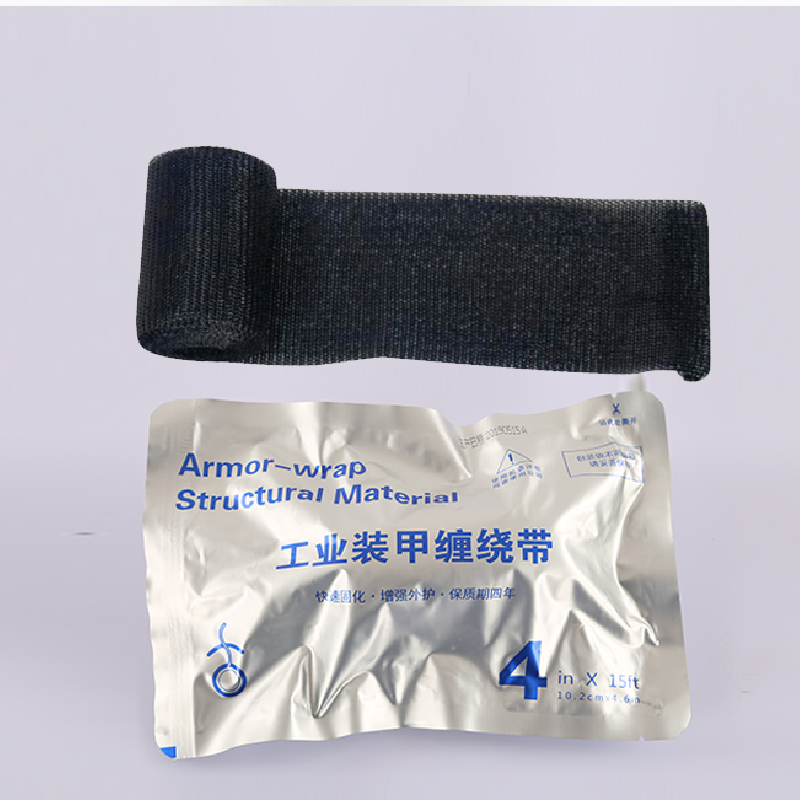
Authoritativeness, Trustworthiness & Client Support
Our commitment to quality, reliability, and customer satisfaction is underpinned by robust certifications, extensive industry experience, and transparent client support mechanisms.
Certifications and Industry Standards:
The manufacturing processes and product performance of Industrial Amor Wrap are rigorously tested and certified to comply with leading international standards. We hold:
- ISO 9001:2015 Certification: Demonstrating our adherence to the highest international standards for quality management systems.
- ASTM Compliance: Our products are regularly tested in accordance with ASTM (American Society for Testing and Materials) standards for critical properties like tensile strength, elongation, adhesion, and chemical resistance.
- NACE/AMPP Standards: Conformance to NACE International (now AMPP) guidelines for corrosion prevention and control, particularly relevant for the oil & gas and petrochemical sectors.
- Third-Party Validation: Independent laboratories routinely verify our product specifications and performance claims, providing an unbiased assessment of our materials.
Partner Clients and Industry Presence:
Over two decades of dedicated service, we have partnered with leading industrial entities across the globe, including major energy companies, municipal water authorities, and large-scale manufacturing groups. Our extensive track record and client testimonials speak to the consistent quality and effectiveness of our solutions.
Frequently Asked Questions (FAQ):
Q: How does Industrial Amor Wrap handle extreme temperatures?
A: Our wrap is designed for a broad operating temperature range, typically from -40°C to +85°C. For applications outside this range, customized formulations are available.
Q: Is specialized equipment required for application?
A: No, the wrap is designed for manual or semi-automated field application. Standard tools for surface preparation and wrapping are usually sufficient. We also provide detailed application guides and training.
Q: What is the lead time for orders?
A: Standard product orders typically have a lead time of 2-4 weeks. For large volume or customized solutions, lead times will be confirmed upon order specification, factoring in material availability and production schedules.
Q: What warranty is provided with the product?
A: We offer a comprehensive product warranty covering manufacturing defects and material performance under specified application conditions. Specific terms and duration will be provided with your quotation, typically ranging from 10 to 20 years depending on the application and product variant.
Customer Support and After-Sales Service:
Our commitment extends beyond product delivery. We provide:
- Dedicated Technical Support: A team of experienced engineers is available to provide pre-sales consultation, application guidance, and troubleshooting support.
- On-Site Training and Supervision: We can arrange for technical personnel to provide hands-on training and supervision during initial project installations.
- Comprehensive Documentation: Access to detailed product data sheets, application manuals, and safety information.
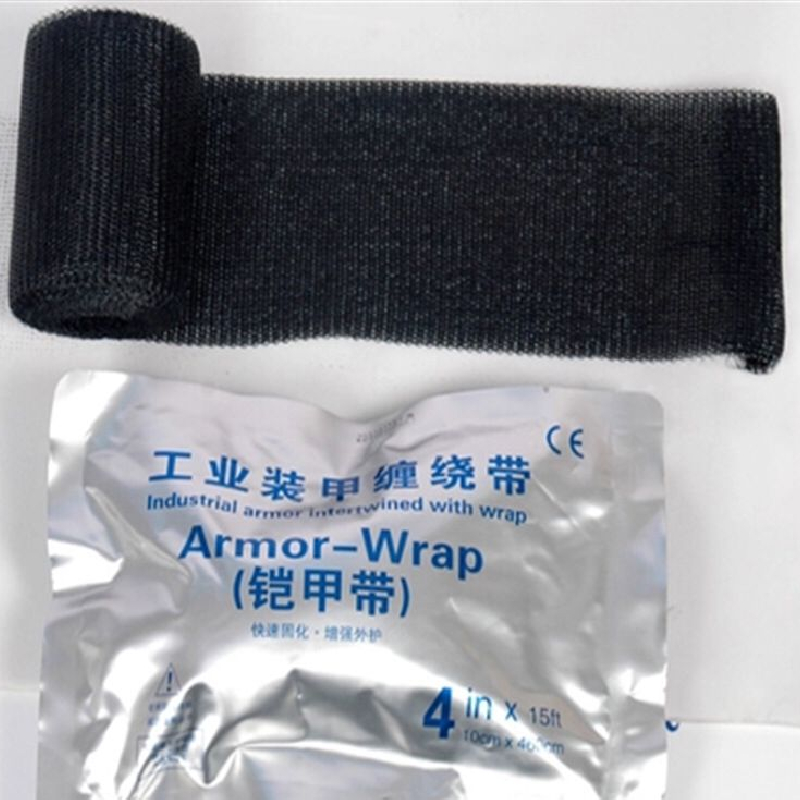
Conclusion
In the challenging world of industrial operations, the longevity and integrity of assets are directly linked to the effectiveness of their protective measures. Industrial Amor Wrap stands as a testament to advanced material science, offering an unparalleled combination of corrosion resistance, mechanical durability, and long-term cost-effectiveness. By providing a superior barrier against environmental aggressors and physical damage, it significantly extends asset service life, minimizes maintenance overheads, and ensures operational continuity in critical infrastructure across diverse sectors.
Its proven performance, backed by rigorous testing, industry certifications, and successful real-world applications, positions it as the preferred choice for B2B decision-makers and engineers seeking robust, sustainable, and high-ROI protective solutions. Embracing this advanced technology is not merely an investment in material protection but a strategic commitment to enhanced reliability, reduced total cost of ownership, and a more sustainable industrial future.
References
- NACE International. (2020). Standard Practice for Liquid-Applied External Protective Coatings for Steel Pipelines. NACE SP0188.
- ASTM International. (2023). Standard Test Methods for Tensile Properties of Thin Plastic Sheeting. ASTM D882-18.
- ISO. (2015). Quality management systems — Requirements. ISO 9001:2015.
- The Coating Inspector's Handbook. (2018). Fundamentals of Corrosion and Coatings. AMPP.
- European Committee for Standardization. (2013). Petroleum and natural gas industries - External coatings for buried or submerged pipelines. EN 10289:2013.
-
Self Amalgamating Tape: Waterproof Electrical Insulation & SealingNewsAug.30,2025
-
Self Amalgamating Tape: Waterproof Electrical & Pipe SealNewsAug.29,2025
-
Medium Voltage Fusion Tape | Self-Fusing Electrical InsulationNewsAug.28,2025
-
Butyl Rubber Tape for Ventilation PipesNewsAug.22,2025
-
Flex Tape Waterproof for Underground CablesNewsAug.22,2025
-
Flame Retardant Tapes for Circuit InsulationNewsAug.22,2025
